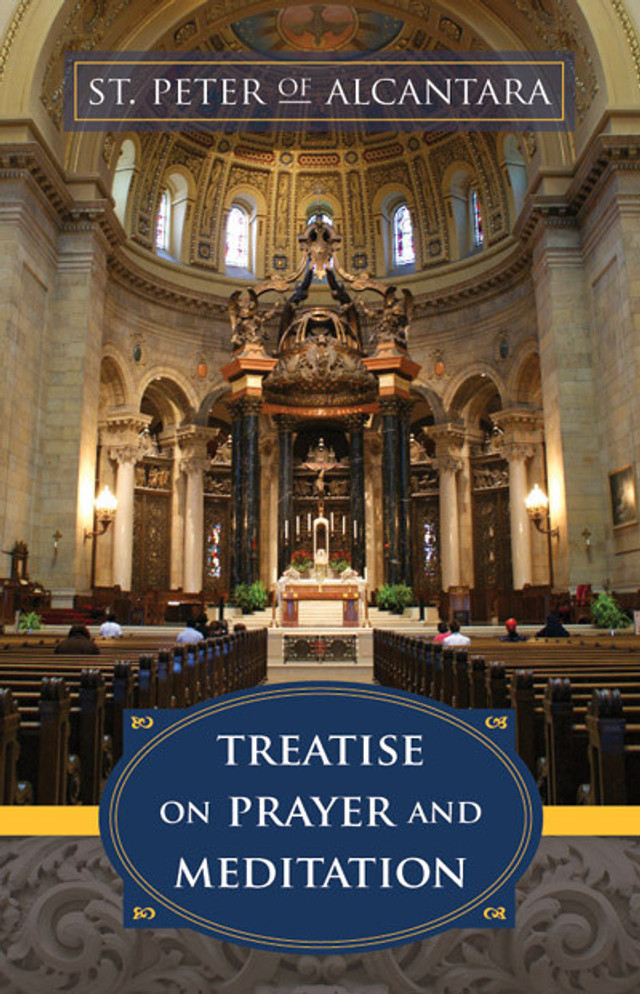Discover the nature of devotion as Saint Peter of Alcantara leads you through difficulties for prayer, the definition of devotion, and how to achieve it in your spiritual life. The following excerpt was taken from Treatise on Prayer and Meditation.
The Greatest Difficulty
THE greatest difficulty from which persons suffer who give themselves to prayer is a lack of all devotion; and this is something they often experience. When it [devotion] does not fail them, there is of course nothing sweeter or more easy than prayer. Consequently, having spoken of the matter for prayer and of the method to be employed, it will be a good thing now to treat of those things that foster devotion and of those that hinder it, of the temptations that most commonly beset devout persons, and finally to give certain practical instructions on this matter.
What is Devotion?
Before proceeding, however, this is certainly the moment to make clear what devotion really is, that thus at the very beginning we may have some idea of what the jewel is like for which we are struggling. Devotion, as St. Thomas says, is a virtue which makes a man prompt and ready for every good work, which urges him forward and facilitates well-doing. These words show clearly the necessity and great value of this virtue. There is, indeed, far more in it than many would imagine at first sight.
We should bear in mind that the greatest obstacle there is to leading a good life comes from the corruption of our nature, due to sin. This is the cause of that ready inclination we have to what is evil, and of that heaviness and strain which we experience in pursuing what is good. These two hindrances make the path of virtue very difficult for us, though holiness in itself is the sweetest and most beautiful thing in the world and the most worthy of love and honor. To meet this difficulty and sluggish disinclination, the divine Wisdom has provided a most fitting remedy in the virtue and succor of devotion. Just as the north wind scatters the clouds and leaves a clear and open sky, so does true devotion brush away from our souls this weight of difficulty and leaves them agile and unencumbered, ready for every good work. This virtue is not, indeed, of any ordinary kind, for it is also a special gift of the Holy Spirit, a dew from Heaven, a succor and a visitation from God, won through prayer and designed to counteract this difficulty and heaviness, to banish this tepidity and provide promptitude in its place, to fill the soul with high purposes, to enlighten the intellect and fortify the will, to enkindle the fire of divine love and extinguish the flames of evil desire, to impart a distaste for the world and a horror of sin, and to establish within a man a new fervor, a new spirit and a new strength and ardor in well-doing. As long as the locks on Samson’s head remained untouched, he was stronger than any other man, but once they were cut, he became as weak as the rest. So [also] is devotion for the Christian soul; deprive her of it, and she is weak at once.
From what we have said, the true and essential characteristic of devotion may be clearly grasped. Not in any mere tenderness of heart does it lie, nor in that consolation which those who pray are accustomed at times to experience, unless these be accompanied by a readiness and zeal in well-doing.
Often it happens that when Our Lord would prove His own, the one [i.e., tenderness of heart] is present without the other [consolation; or vice versa; sometimes neither one is present]. What is true is that this devotion and alacrity [willingness] frequently lead to consolation, and conversely, this same consolation and relish for spiritual things increase that real devotion which lies in a promptitude and zeal for doing good. For this cause the servants of God may, with good reason, long and pray for these consoling joys, not for any relish to be found therein, but because they serve to strengthen that devotion which facilitates good actions. Such is the sense of those words of the prophet: “I have run the way of thy commandments, when thou didst enlarge my heart” (Psalms 118:32)—namely, with the joy of thy consolation, which was the source of that agility.
How to Acquire Devotion
Finally, we shall endeavor to treat of the means for acquiring devotion; and since this virtue is knit with all those which bind us in any way intimately with God, it will mean treating at the same time of the ways for acquiring perfect prayer and contemplation, as well as the consolations of the Holy Spirit, the love of God, divine wisdom and that union of our souls with God in which the whole purpose of a spiritual life consists. Last of all, we shall treat of the ways whereby we may in this life win possession of God Himself. This is the treasure of which the Gospel speaks, that “Pearl of Great Price,” for the securing of which the wise merchant sells cheerfully all that he has.
Thus, clearly enough, we are embarking upon a very lofty theology, since it teaches us the way to the Sovereign Good and, step-by-step, builds up the ladder whence we may lay hold of the fruit of happiness, insofar as is possible for us in this life.
ooo
This article is taken from a chapter in Treatise on Prayer and Meditation by Saint Peter of Alcantara which is available from TAN Books.









